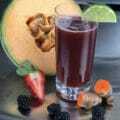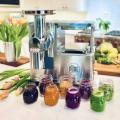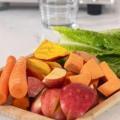Show yourself some love this Valentine’s Day with a heart-healthy shot of ginger-beet juice that just may benefit more than you expected!
Beet Juice: a Love Potion for Your Heart
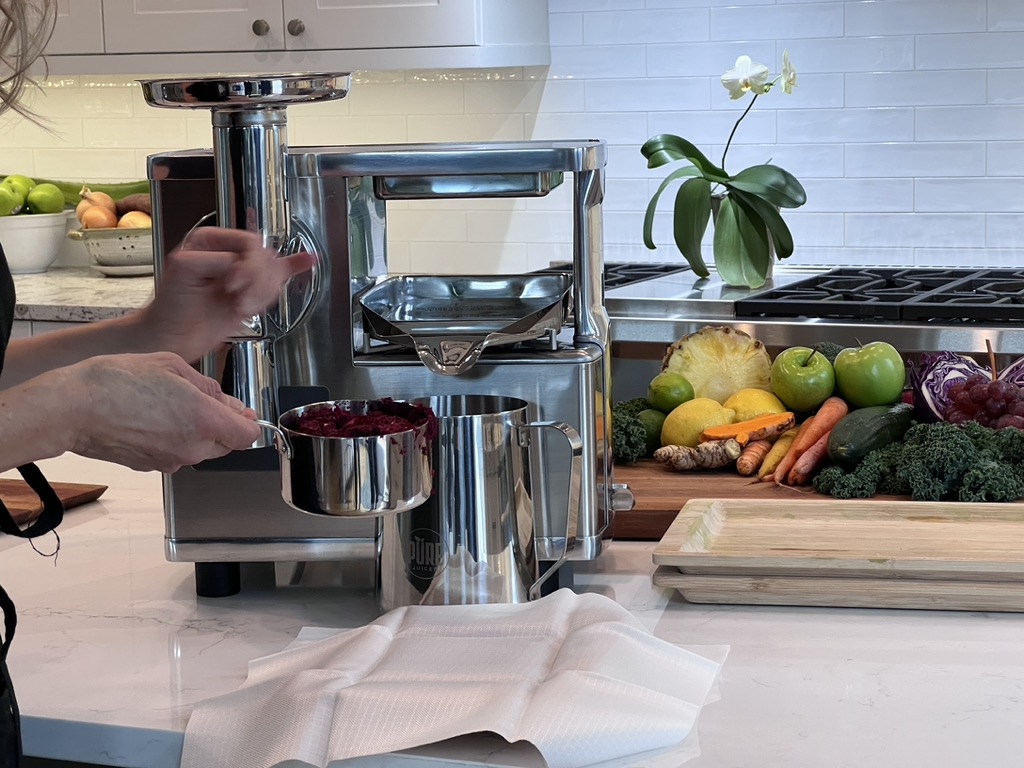
Beet Juice: a Timeless Aphrodisiac
It’s almost Valentine’s Day and love is in the air, so if you’re in need of a love potion, look no further than . . .beet juice? As strange as it may sound, beetroot and its juices have long been associated with romance. Ancient Romans believed that eating beets enhanced amorous feelings, so much so that in the ruins of Pompeii, frescoes of beets were found decorating the walls of former brothels. Folklore in ancient Greece maintained that Aphrodite ate beets to enhance her appeal, and it was even said that if two people ate of the same beetroot, they’d be destined to fall in love.
Perhaps the ancients were onto something: not only do beets contain tryptophan and betaine, which both promote feelings of well-being, they also contain a high amount of boron, a trace mineral which helps to increase the half-life, bioavailability, and efficient use of sex hormones.
It’s all a bit spicy, really.
How Beets Affect the Heart
As fun as it may be to imagine sipping bright pink beet juice and immediately making a heart connection, even more interesting is the scientific evidence showing that beet juice is actually very beneficial to heart health.
Beets are rich in potassium, antioxidants, and phytochemicals, all of which help protect our bodies against heart disease. Additionally, beets are full of nitrates, which play a special role in helping our bodies stay healthy.
Beets Are Full of Nitrates
When plants photosynthesize nitrogen from the atmosphere, inorganic compounds called nitrates are formed. And wouldn’t you know it, beets are chock full of nitrates. When we drink beet juice, our bodies convert all those nitrates into nitric oxide.
This process causes our blood vessels to widen, which improves circulation (did someone say aphrodisiac?) and provides more blood and oxygen to the heart. This lowers blood pressure and decreases the risk of heart disease and stroke.
Studies show that drinking just 500ml of beetroot juice a day can significantly reduce high blood pressure.In fact, a study presented at the British Cardiovascular Society conference in June of 2022, showed that a regular glass of beet juice can reduce signs of blood vessel inflammation in people with coronary heart disease.
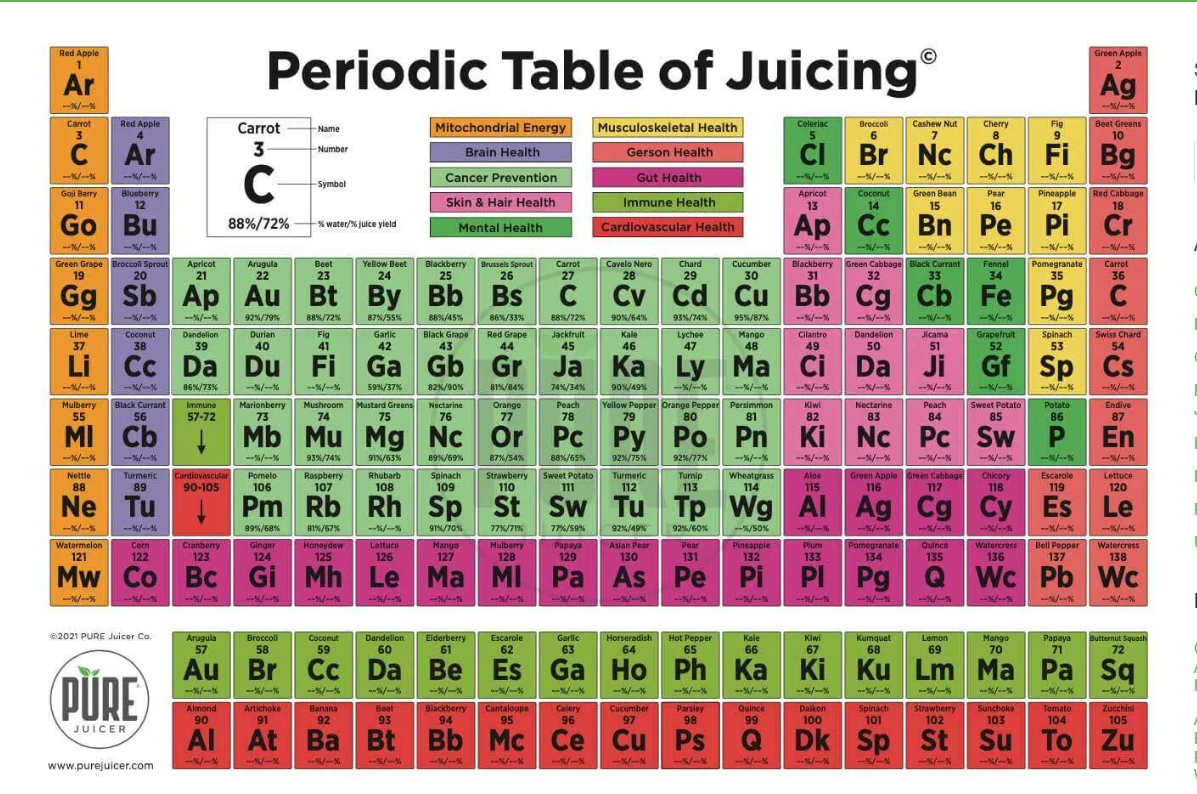
Beet Juice Protects Your Heart and Prevents Cancer
Let’s take a quick peek at our Periodic Table of Juicing, which is a handy tool for determining the the most notable health benefits of various juice-worthy produce. Notice the Valentine-red bar at the very bottom of the table, where you’ll see beets featured alongside other foods that are excellent for cardivascular health. Beets are also listed in light green to indicate their nutritional profile is also notable in the prevention of cancer.
Beets: the Super Food
So far we’ve covered heart health, cancer prevention, and improved circulation (wink wink). Did you know that beet juice can also prevent and treat inflammation, improve mood, increase brain function, and build stronger bones? Beet juice is a wonderful prenatal supplement, and has been shown to decrease the severity of menstrual cramps, anemia, and fatigue. The same process that supplies more oxygen to the heart also supplies more oxygen to the muscles of people suffering from COPD.
Are Beets Bad for Kidneys?
If you’ve heard that beets can cause kidney stones, you can rest assured knowing that beet juice will positively affect kidney health in most people, with the exception of those who are already at a higher risk of developing kidney stones. In that case, a physician might recommend staying away from beets and beet juice. As with all things health related, make sure to talk to your physician if you have concerns about making beet juice a regular part of your diet.
Eating Raw Beets vs. Drinking Beet Juice
Honestly, you can’t go wrong with beets. Whether you’re eating them raw, pickled, or drinking sweet, sweet beetroot juice, you’ll be treating yourself to the best kind of self care, from the inside out.
One thing to take note of, however, is that like many raw foods, beets lose some of their nutritional value when heated.
Beets are full of the phytonutrient betalain (which helps to detoxify the liver and protects the body from aging), but heat causes betalains to become less stable. When you drink beet juice made in a cold-press juicer, you’ll know you’re retaining the best nutritional value of your beets.
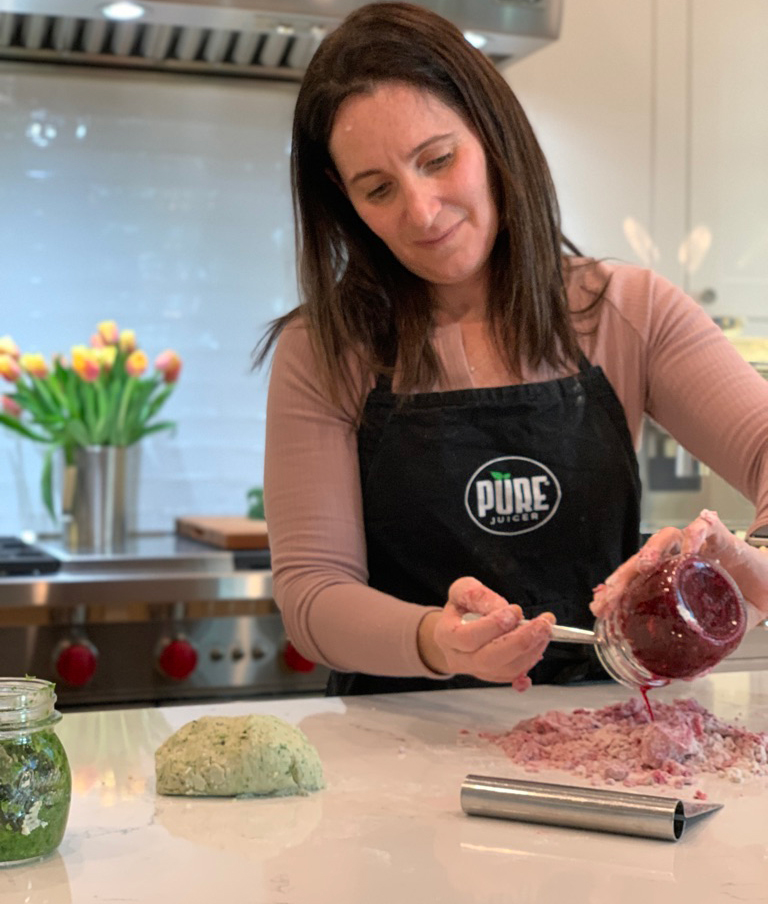
Spicy Beet and Ginger Love Elixir
Ingredients
- 2 red beets
- 1 thumb of ginger
Yields about 10oz of juice, or 5 servings of 2oz shots.
Directions
- Grind beets and ginger in stage one of your juicer, using a #10 grid.
- Fold 1.5 cups of pulp into a press cloth.
- Press slowly.
Spread the Love by Reducing Waste
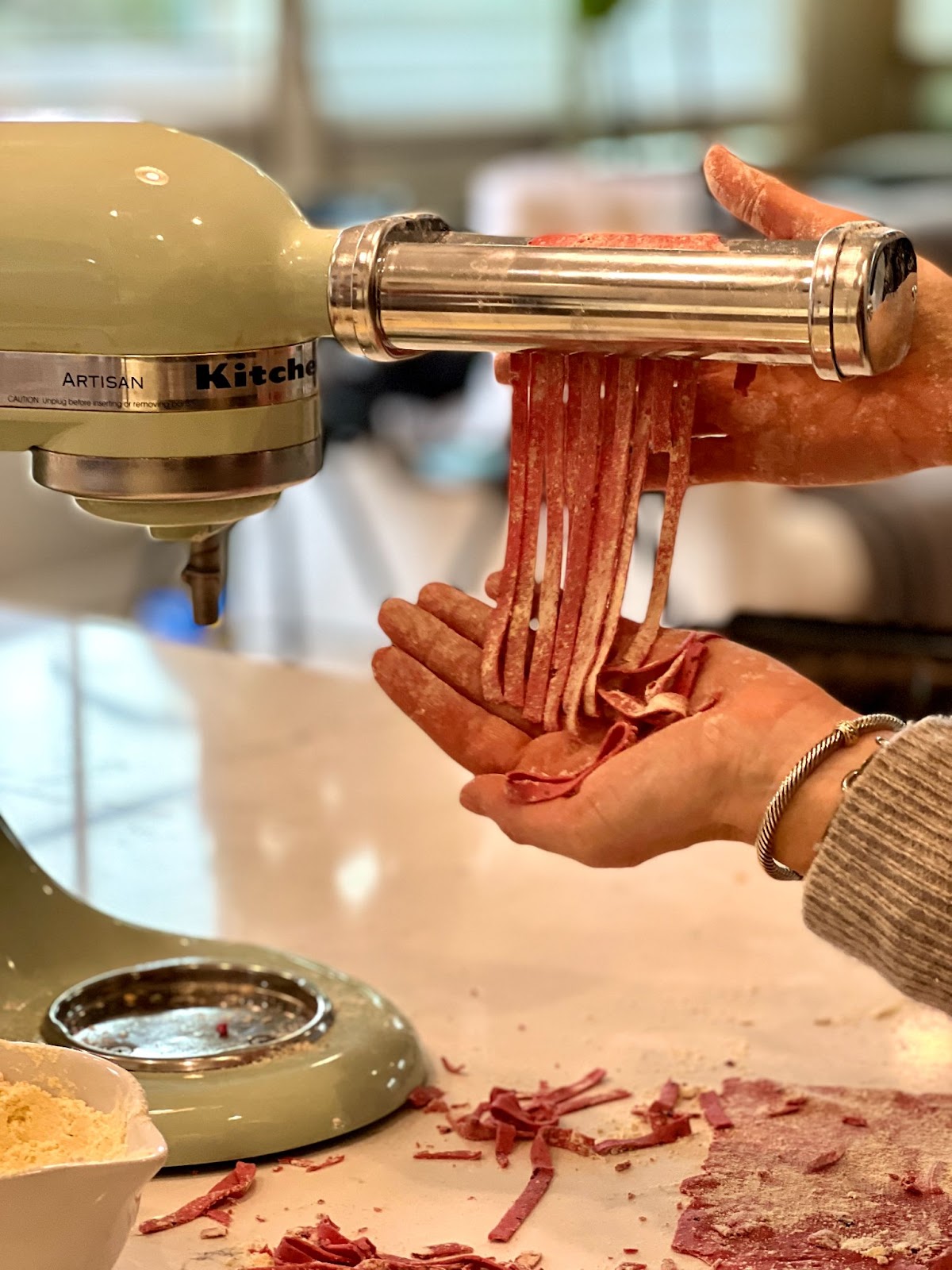
One of our very favorite tips when juicing is to save the leftover pulp to use in other recipes. Juice pulp will last up to three days in the refrigerator. For Valentine’s Day, why not use your pulp to make homemade Beet and Ginger Pasta? You’ll not only be showing love to your body, but also to the planet.
Pasta made from leftover juice pulp is full of extra insoluble fiber our digestive system and immune system need to stay healthy. And bonus: it tastes so good.
The pasta dough will last up to three days (with the pulp). It takes 10-20 minutes to make everything after the dough is ready.
Bonus Recipe: Beet and Ginger Love Pasta
Ingredients
- ginger-beet juice pulp
- all-purpose flour
- filtered water
- olive oil
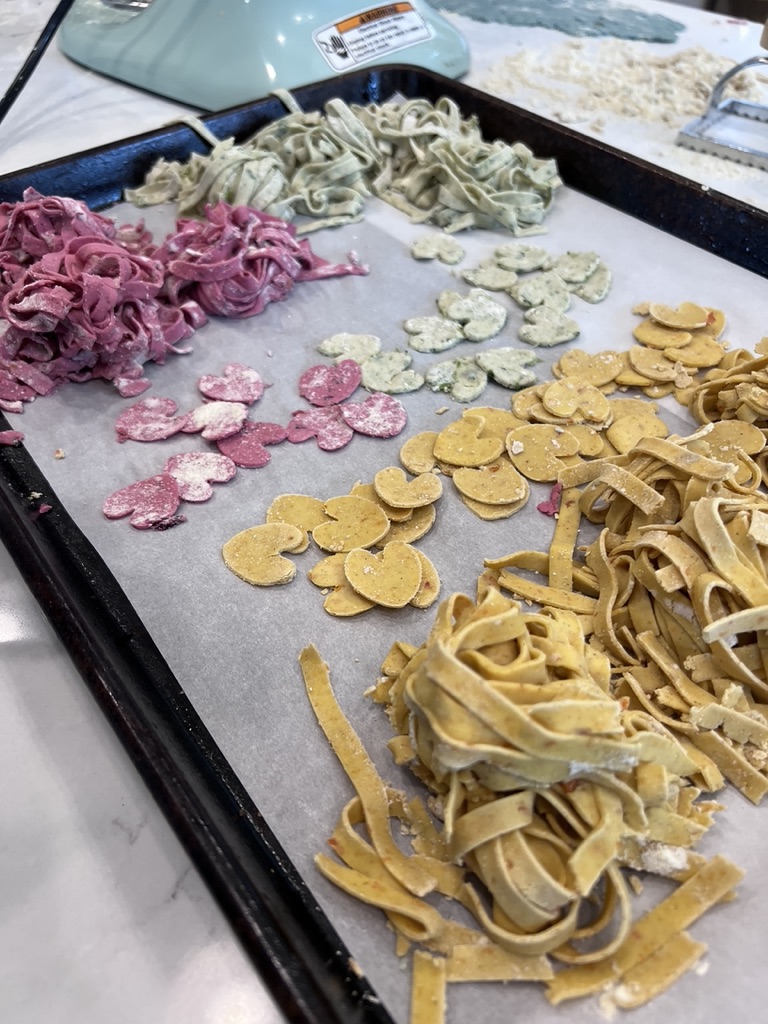
Directions
- Put 1 ¼ cups of flour in a mound on your flat surface.
- Keep the other ¼ cup on hand to add in later.
- Using your fingers, form a hole in the center of the flour.
- Add a tablespoon of oil, ¾ cup of pulp, and a teaspoon of water into the hole.
- Knead the dough using your hands and a scraper for 3 minutes.
- Add the other ¼ cup of flour as needed until the dough is firm but still soft.
- Shape the dough into a ball, cover it with an airtight material (plastic wrap or other), and store it in the refrigerator for 30 minutes or overnight if you are planning ahead.
- Once cooled, roll the dough out on a lightly floured flat surface. You can roll this as thin as possible.
- Use a pasta machine, cookie cutters, or simply cut into linguni with a knife.
- Heat water to boiling with a little olive oil.
- Place pasta into boiling water for 2 minutes, then remove it using a slotted spoon or strain.
Pro Tip: Add pasta to a saute pan with garlic and olive oil to enjoy the full flavor of the pasta!
Check out other flavors of juice pulp pastas
Health Benefits
beets: beets are nutrient-rich, containing a little bit of every vitamin and mineral your body requires, such as folate and manganese. They also serve as a way to lower blood pressure, reduce inflammation, and improve digestive health.
ginger: ginger is a common ingredient found in juice that adds a kick but also has many health benefits. These consist of helping with nausea, oxidative stress, and inflammation. It has also proven to lessen chronic indigestion, and may also drastically lower blood sugar levels and heart disease risk factors.
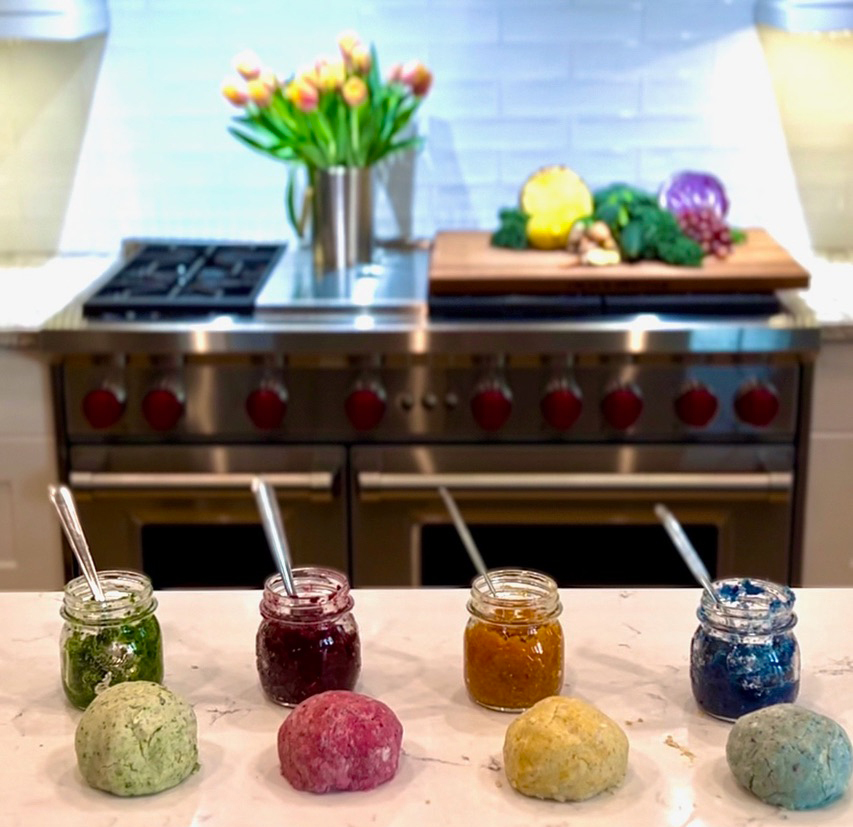
Sources
Beetroot 101: Nutrition Facts and Health Benefits
The Potential Benefits of Red Beetroot Supplementation in Health and Disease
Beetroot Nutrition, Just Beet It
Fun Facts & Tidbits, Love Beets
11 Proven Health Benefits of Ginger
Medical Disclaimer
PURE Juicer is a juicing company. We are not doctors or medical experts. All content and information on this blog and website is for informational and educational purposes only, does not constitute medical advice, and does not establish any patient-client relationship by using this website.
Although we strive to provide accurate general information, the information presented here is not a substitute for professional advice. You should not rely solely on this information. Always consult a professional in your area for your health questions and concerns before making any professional, legal, medical, financial, or tax-related decisions.

